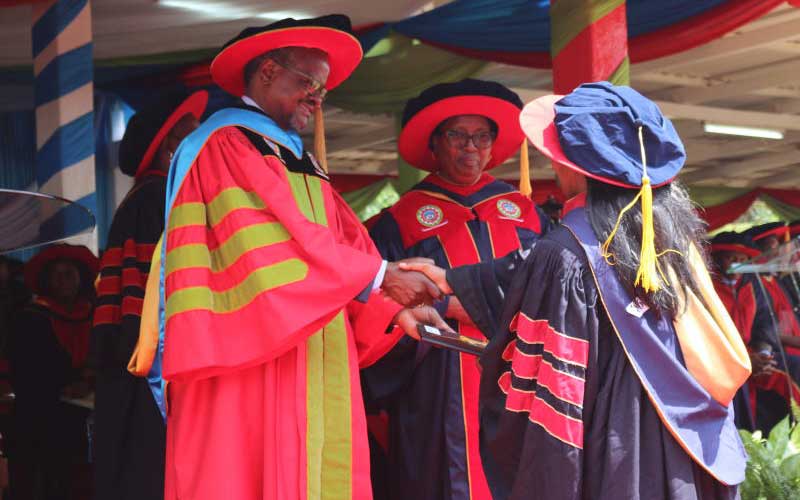
JKUAT Chancellor Professor Joseph Mathu Ndung'u (left) confers a PhD degree to a graduand assisted by the Vice-Chancellor Prof. Victoria Wambui Ngumi during the university's 34th graduation. [File]
In one of the dramatic scenes of the film The Gods must be Crazy, a white woman accompanies Nixau Toma, the native main character, to the jungle. One day, she finds Nixau using a crude tool, made of one of the finest diamonds, to crack nuts. Knowing its worth, she hastily requests Nixau to give her the stone and runs away with it, leaving behind her mirror.